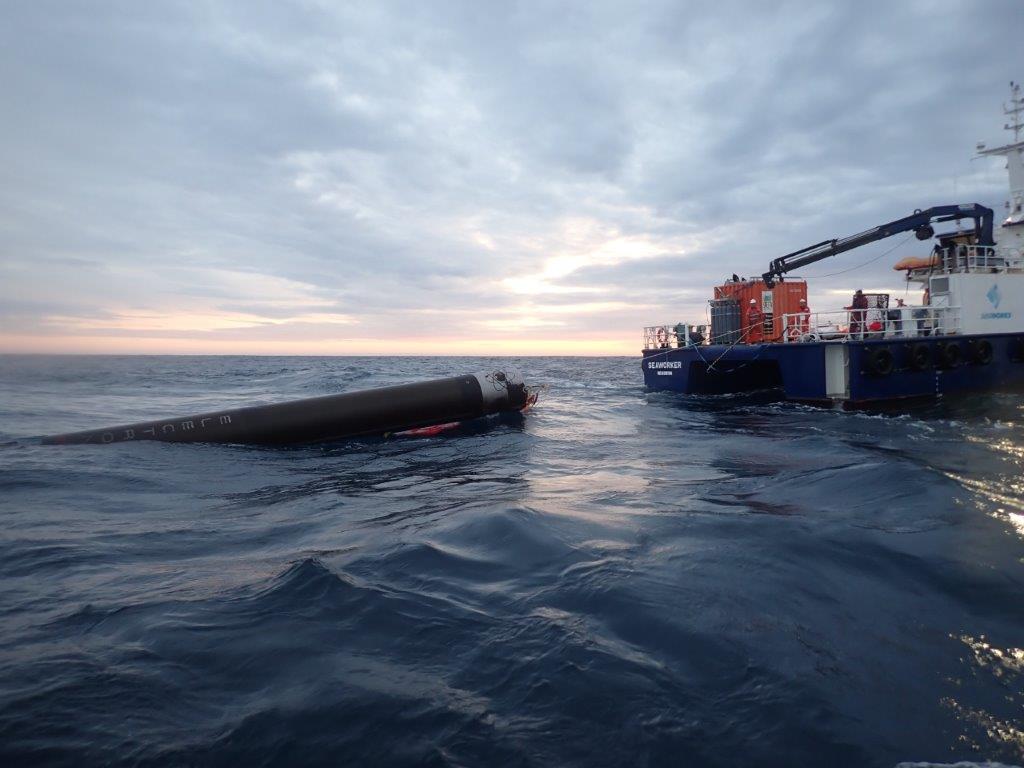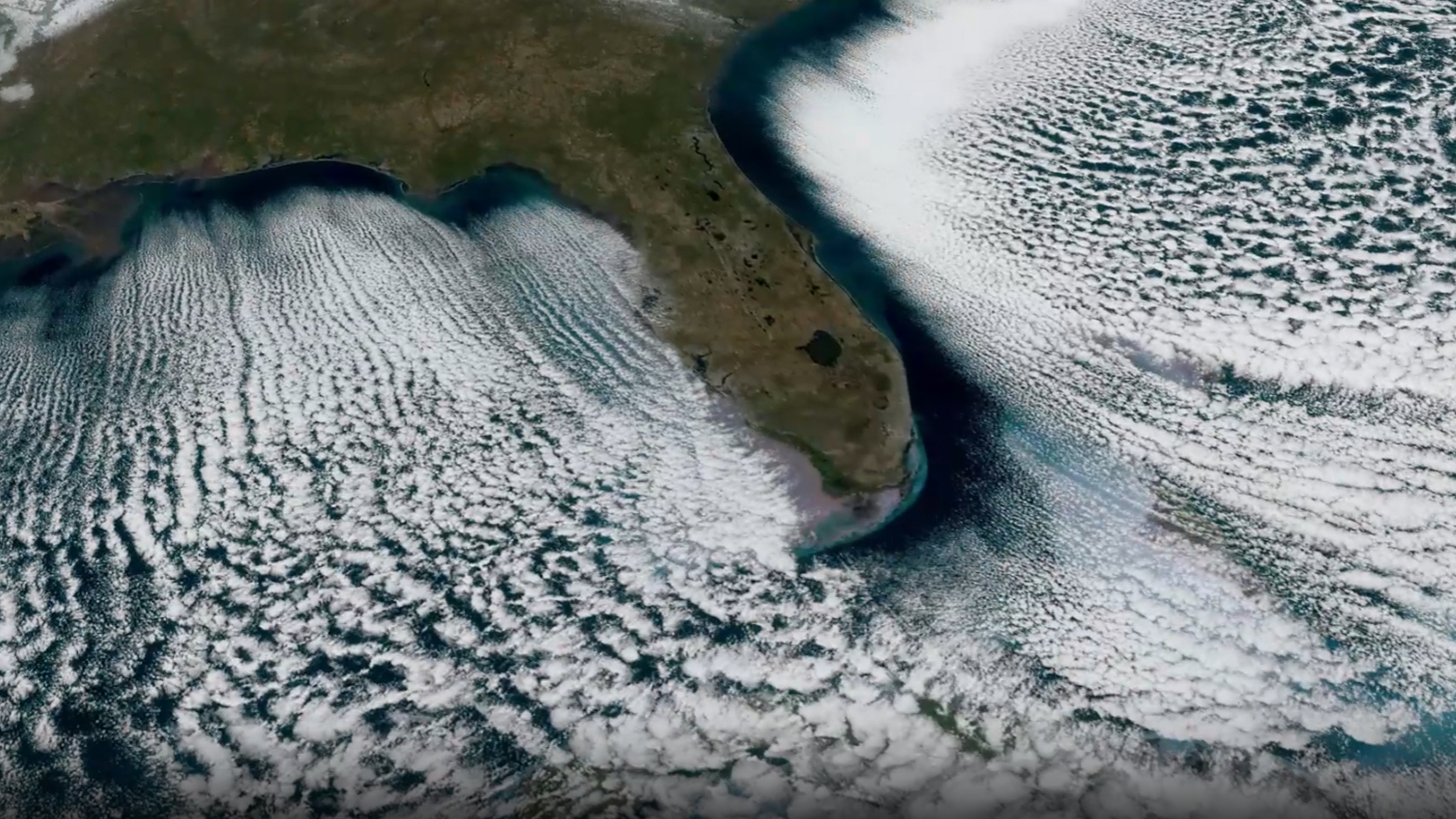Rocket Lab to launch satellites, recover booster tonight. How to watch live.
Breaking space news, the latest updates on rocket launches, skywatching events and more!
You are now subscribed
Your newsletter sign-up was successful
Want to add more newsletters?

Delivered daily
Daily Newsletter
Breaking space news, the latest updates on rocket launches, skywatching events and more!

Once a month
Watch This Space
Sign up to our monthly entertainment newsletter to keep up with all our coverage of the latest sci-fi and space movies, tv shows, games and books.

Once a week
Night Sky This Week
Discover this week's must-see night sky events, moon phases, and stunning astrophotos. Sign up for our skywatching newsletter and explore the universe with us!

Twice a month
Strange New Words
Space.com's Sci-Fi Reader's Club. Read a sci-fi short story every month and join a virtual community of fellow science fiction fans!
Update for 9:45 pm ET Nov. 17: Rocket Lab has successfully launched an Electron booster into orbit carrying two BlackSky satellites and returned its first-stage booster to Earth for an ocean splashdown. Read our full story here.
Rocket Lab plans to recover a booster after launching two satellites to orbit tonight (Nov. 10), and you can watch the action live.
A two-stage Electron rocket topped with two commercial Earth-observation satellites is scheduled to lift off tonight from Rocket Lab's New Zealand site at 11:25 p.m. EST (0425 GMT on Nov. 11). If all goes according to plan, shortly after liftoff, the Electron's first stage will splash down softly in the Pacific Ocean under parachutes, and Rocket Lab teams will fish it out of the sea.
You can watch it all live here at Space.com, courtesy of Rocket Lab, as well as on this page and directly via the company. Coverage will begin about 20 minutes before launch.
Related: Rocket Lab and its Electron booster (photos)
The main goal of tonight's mission, which Rocket Lab calls "Love at First Insight," is to deliver two satellites to orbit for the company BlackSky. But the booster recovery is an important sidelight, because it will inform Rocket Lab's quest to make the Electron's first stage reusable.
Rocket Lab has conducted two Electron recoveries already, during missions that launched in November 2020 and May 2021. But tonight's attempt will be the first to include a helicopter, which will be stationed in the recovery zone about 230 miles (370 kilometers) off the New Zealand coast.
Breaking space news, the latest updates on rocket launches, skywatching events and more!
Rocket Lab plans to eventually pluck each falling Electron first stage out of the sky with a helicopter, and tonight's activities will provide a sort of dry run for that ambitious plan.
"The helicopter will not attempt a mid-air capture for this mission but will test communications and tracking to refine the concept of operations (CONOPS) for future Electron aerial capture," Rocket Lab representatives wrote in a preview of tonight's mission.
The 59-foot-tall (18 meters) Electron gives small satellites dedicated rides to orbit. "Love At First Insight" will be the rocket's 22nd launch overall and its fifth of 2021.
One of this year's flights — the May 2021 launch that featured a successful booster recovery — attempted to loft two BlackSky satellites. But an anomaly occurred in the Electron's upper stage engine igniter system, resulting in the loss of both satellites.
If "Love At First Insight" does not get off the ground tonight, it will have other chances; the launch window runs through Nov. 24.
Mike Wall is the author of "Out There" (Grand Central Publishing, 2018; illustrated by Karl Tate), a book about the search for alien life. Follow him on Twitter @michaeldwall. Follow us on Twitter @Spacedotcom or Facebook.

Michael Wall is a Senior Space Writer with Space.com and joined the team in 2010. He primarily covers exoplanets, spaceflight and military space, but has been known to dabble in the space art beat. His book about the search for alien life, "Out There," was published on Nov. 13, 2018. Before becoming a science writer, Michael worked as a herpetologist and wildlife biologist. He has a Ph.D. in evolutionary biology from the University of Sydney, Australia, a bachelor's degree from the University of Arizona, and a graduate certificate in science writing from the University of California, Santa Cruz. To find out what his latest project is, you can follow Michael on Twitter.


